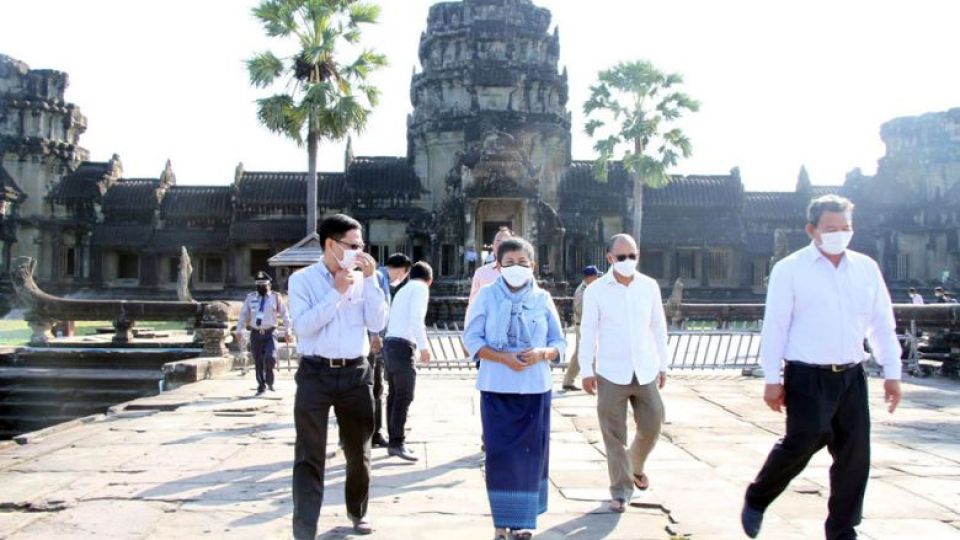January 26, 2022
PHNOM PENH – The Ministry of Culture and Fine Arts has requested that the countries along the Mekong River work together and with the international community to stop the illegal trafficking of antiquities.
The request was made at a workshop on the implementation of the recommendations of the first regional symposium on “Preventive Measures Against Destruction and Encroachment of Heritage Sites and against Thefts, Looting and Illicit Trafficking of Culturally Significant Properties” Phase 2, held in Siem Reap town from January 24-26.
The workshop was funded by the special foundation of the Mekong-Lancang Cooperation special fund 2020 with the participation of representatives from Cambodia, Thailand, Laos, Vietnam, China, Myanmar and their UNESCO country coordinators.
The workshop highlighted the challenges related to the protection of artefacts, antiquities and archaeological sites.
“These sites were constructed by our ancestors, preserved by past generations and are a part of our valuable national heritage,” said culture minister Phoeurng Sackona.
“These precious heritage elements have been and continue to face threats to their existence due not only to natural decay, but especially because of human wrongdoing such as trafficking, destruction, illegal excavation, pillaging and violence,” she said, adding that this problem was the reason that the workshop was organised.
Sackona said the Mekong River has functioned as a major transport system accessible to both foreign and local traders for thousands of years along with certain overland routes. These maritime and terrestrial routes served not only to transport goods, people and animals but also to spread culture in the form of gods, religions, beliefs, ideas and knowledge – all of which circulated freely from one culture to another over time.
Improvements in transportation and technology in combination with domestic and international conflicts resulted in a sizable increase in the amount of illicit trafficking of artefacts taking place in recent times, she noted.
“Faster and more widespread means of transportation accentuate the ease with which our cultural properties are stolen. In addition to this, because of their great financial value, our cultural artefacts are facing an additional threat.
“In fact, their traffic is linked to money laundering and even terrorist financing. Illicit trafficking of cultural properties is a worldwide and growing problem and we have good reasons to act quickly and resolutely to prevent it,” she said.
The minister said the illicit trade of cultural objects can be combated effectively if there is coordination of efforts and collaboration between the various concerned organisations, the victim countries and the nations where the stolen property is destined for sale.
“It is now our duty to work hand-in-hand out of respect for our ancestors and for our own peace of mind in knowing that our heritage will be available for our children. Future generations have a right to study and admire the tangible objects that represent their heritage. Illicit trafficking, looting and the import–export of cultural properties are a threat to all of us and we have to fight them together,” she said.
Ministry secretary of state Chuch Phoeun said the workshops will raise awareness of all of the challenges that countries in the region have faced in protecting their cultural heritages.
Heng Kamsan, deputy director of the ministry’s Department of Archaeology and History, said the main goal of the workshop was to encourage countries along the Mekong to ratify the 1970 UNESCO Convention on the Means of Prohibiting and Preventing the Illicit Import, Export and Transfer of Ownership of Cultural Property.
He said that so far only Cambodia had ratified this treaty among the Mekong countries.
“When all of the Mekong countries ratify this convention, it will be easier for us to work together. We hope that these countries will ratify it because this workshop is attended by experts and representatives in charge of culture from all of the countries concerned, but how much their individual governments will push for it remains an open question,” he said.


